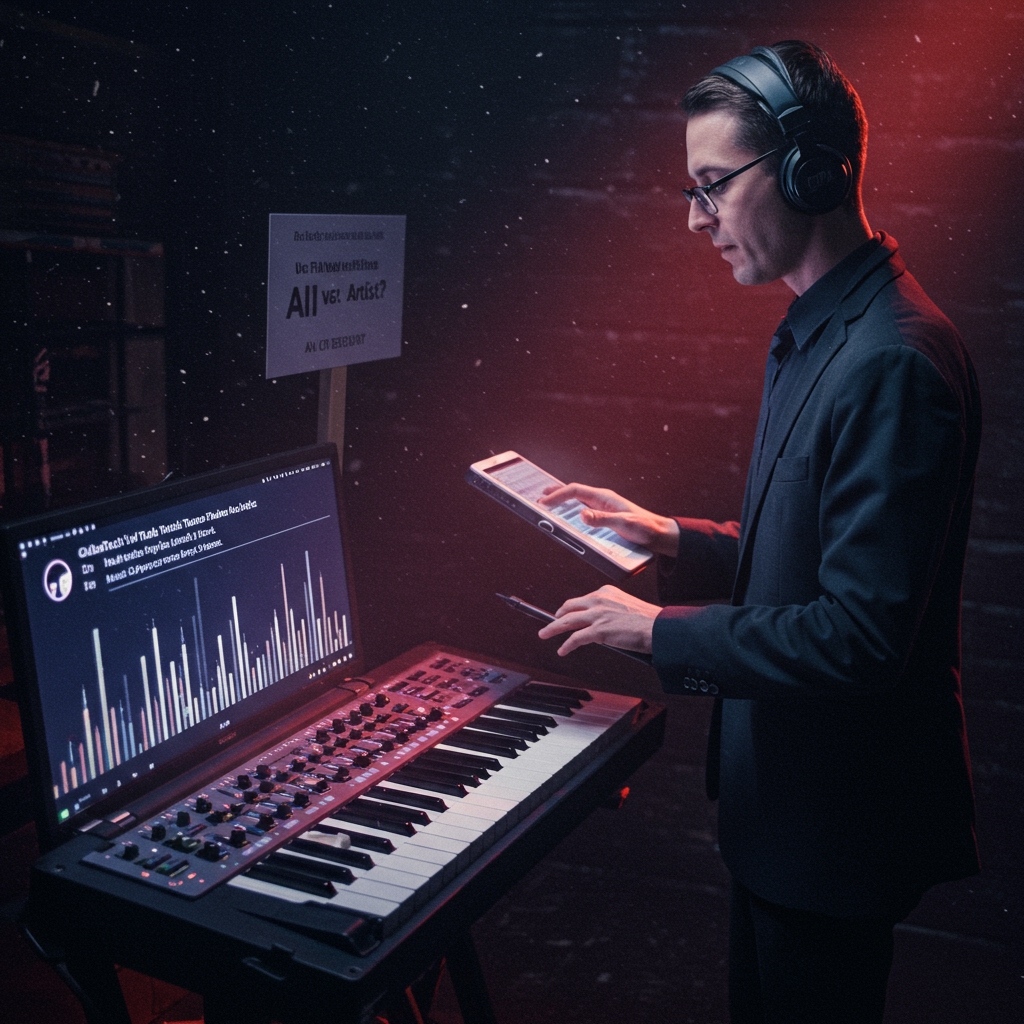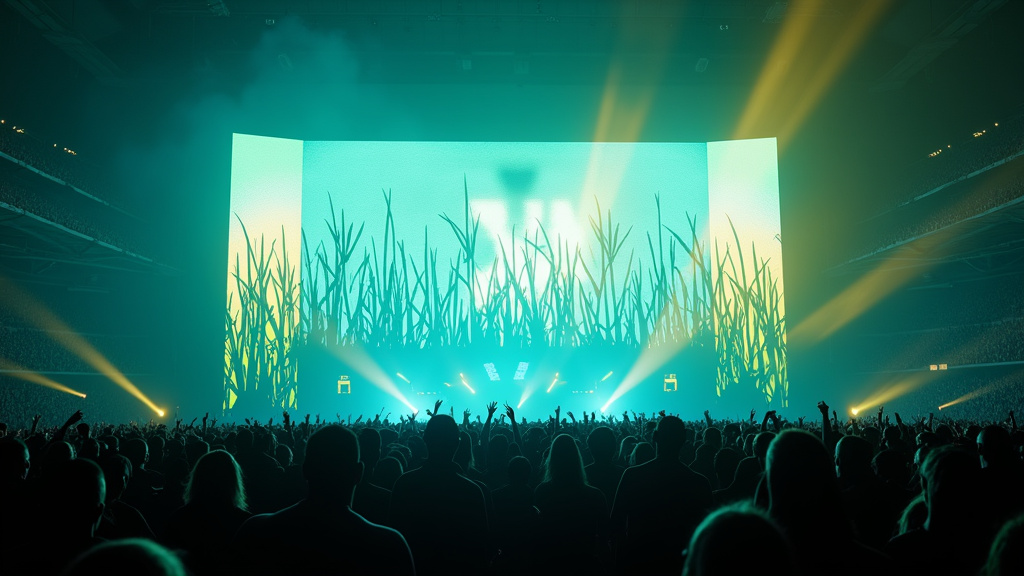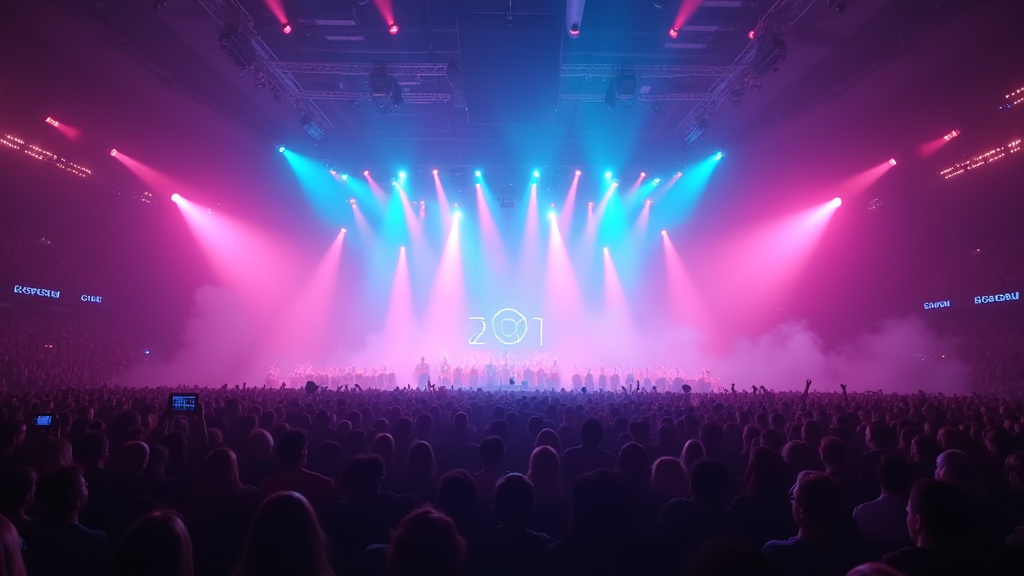GlobalTech Launches TuneSphere, Reshaping Music Creation Landscape
GlobalTech Corp, a prominent technology innovator, officially marked a significant milestone in the evolution of digital media with the rollout of its ambitious AI-powered music generation platform, TuneSphere. The platform went live on February 15, 2025, introducing a sophisticated suite of tools designed to empower both seasoned musicians and novice creators alike. TuneSphere’s debut represents a bold step into the burgeoning field of artificial intelligence-assisted creativity, promising unprecedented accessibility and potential for musical output.
The development and launch of TuneSphere were overseen by Dr. Anya Sharma, GlobalTech Corp’s VP of Innovation. Dr. Sharma has championed the project as a means to democratize music production and unlock new avenues for artistic expression. At its core, TuneSphere allows users to generate original musical tracks simply by inputting text prompts. This intuitive interface aims to lower the barrier to entry for music creation, enabling users to describe the desired style, mood, instrumentation, and structure of a piece, which the AI then interprets and renders into a complete audio track.
Beyond individual creation, TuneSphere incorporates advanced real-time collaboration tools. These features allow multiple users, potentially located across the globe, to work together on a single track simultaneously. This collaborative functionality is envisioned to foster a new ecosystem of collective creativity, facilitating dynamic interactions and shared development of musical ideas within the platform environment. GlobalTech posits that this blend of individual AI generation and collaborative human refinement will define the next era of digital music production.
Beta Success Signals Market Disruption
The public launch follows an extensive and apparently highly successful beta testing phase. According to GlobalTech’s statement issued from their Silicon Valley headquarters, the beta program saw participation from 50,000 creators. This diverse group of testers utilized the platform’s capabilities to produce a staggering volume of content, resulting in nearly a million distinct musical pieces. The sheer scale of output from the beta testing period is cited by GlobalTech as a clear indicator of TuneSphere’s potential to significantly disrupt the traditional music industry landscape, accelerating the pace of creation and diversifying the pool of potential music producers.
The beta results suggest not only a high level of user engagement but also the platform’s capacity to generate unique content on a massive scale. This rapid generation capability presents both exciting opportunities for content creators and considerable challenges for the existing frameworks governing music ownership, licensing, and compensation.
Controversial Royalty Model Sparks Industry Debate
Central to the controversy surrounding TuneSphere is its innovative, yet contentious, royalty model. In a departure from standard industry practices, GlobalTech’s model adjusts payouts based on the percentage of AI contribution to a track. While the precise algorithm and weighting remain proprietary, the fundamental principle is that tracks deemed to have a higher percentage of AI-generated elements may receive different royalty calculations compared to those with greater demonstrable human creative input.
This novel approach to compensation has immediately drawn criticism from various corners of the music industry. Among the most vocal opponents is the Independent Artists Coalition, a prominent advocacy group representing the interests of independent musicians and creators. The Coalition, along with other artists and industry stakeholders, argues that this model could devalue human creativity, make it difficult for artists to earn a sustainable living, and create ambiguities in copyright and ownership, especially in tracks that blend AI generation with significant human editing or performance.
Critics worry that establishing a variable payout based on perceived AI contribution sets a dangerous precedent, potentially undermining the value of artistry and skill that human musicians bring to the creative process. They call for models that prioritize human input and ensure fair compensation regardless of the tools used in the initial stages of composition.
Industry Reaction and Future Implications
The launch of TuneSphere and its accompanying royalty model have ignited a broader debate across the music and technology sectors regarding the future of creation, ownership, and economic sustainability in the age of advanced AI. Industry analysts are closely watching how major labels, streaming services, and collecting societies will react to the influx of AI-generated content and the proposed new royalty structures.
The Independent Artists Coalition and similar groups are expected to continue advocating for policies and industry standards that protect human artists and ensure equitable compensation. The introduction of platforms like TuneSphere forces a critical examination of existing legal frameworks for copyright, which were established long before the advent of sophisticated AI capable of generating original works.
While GlobalTech Corp maintains that TuneSphere is a tool to augment human creativity and not replace it, the economic implications of a system that potentially reduces compensation for AI-assisted works are significant. The debate extends beyond royalties to touch upon issues of artistic authenticity, the definition of authorship, and the potential for market saturation with easily generated content.
The future trajectory of the music industry will undoubtedly be shaped by the integration of AI technologies like TuneSphere. The platform’s ability to enable 50,000 creators to produce nearly a million distinct musical pieces during beta testing is a powerful indicator of its transformative potential. However, resolving the ethical, economic, and creative tensions highlighted by the controversial royalty model and the concerns raised by groups like the Independent Artists Coalition will be crucial for determining whether this transformation is equitable and sustainable for the entire ecosystem.





